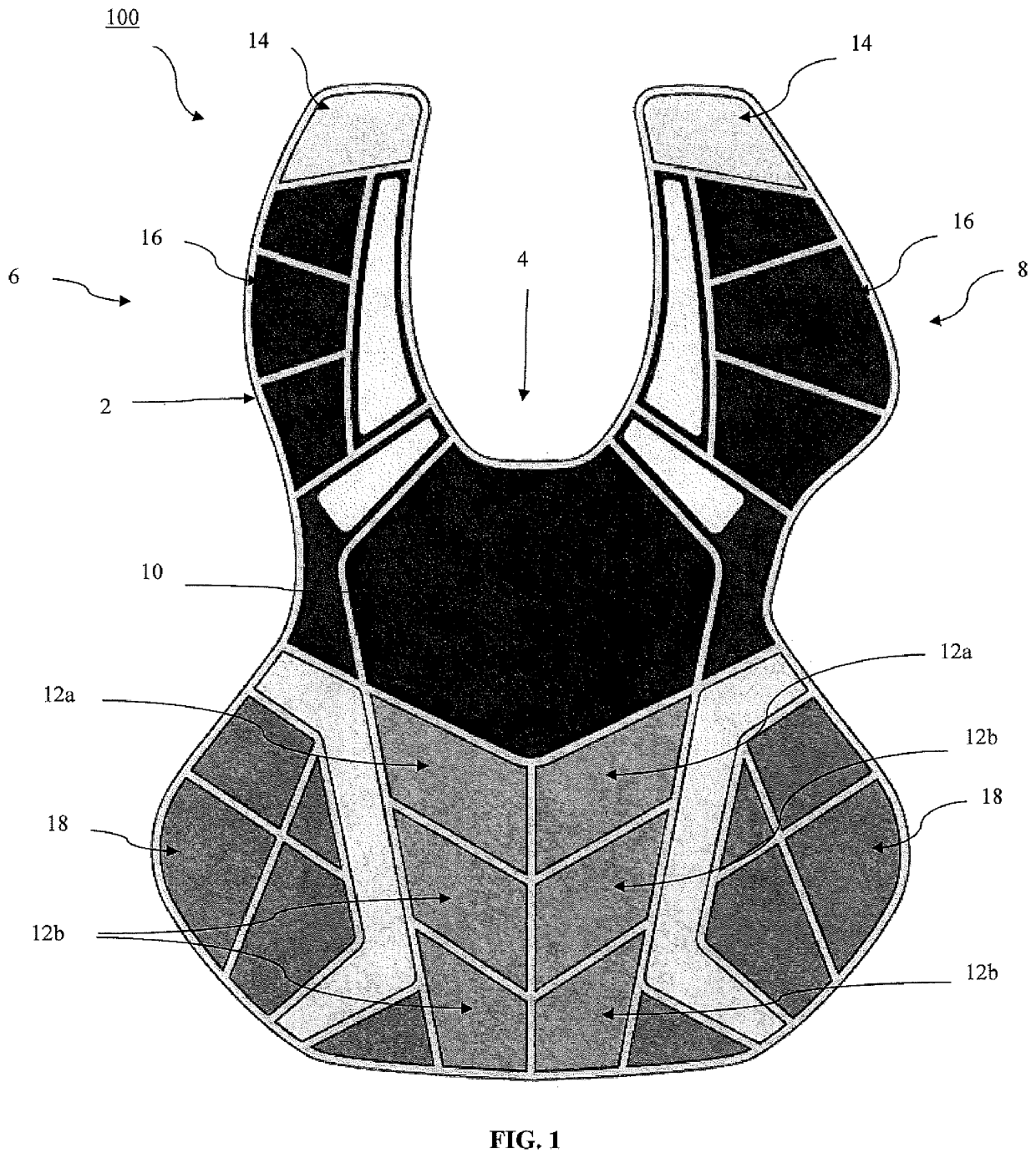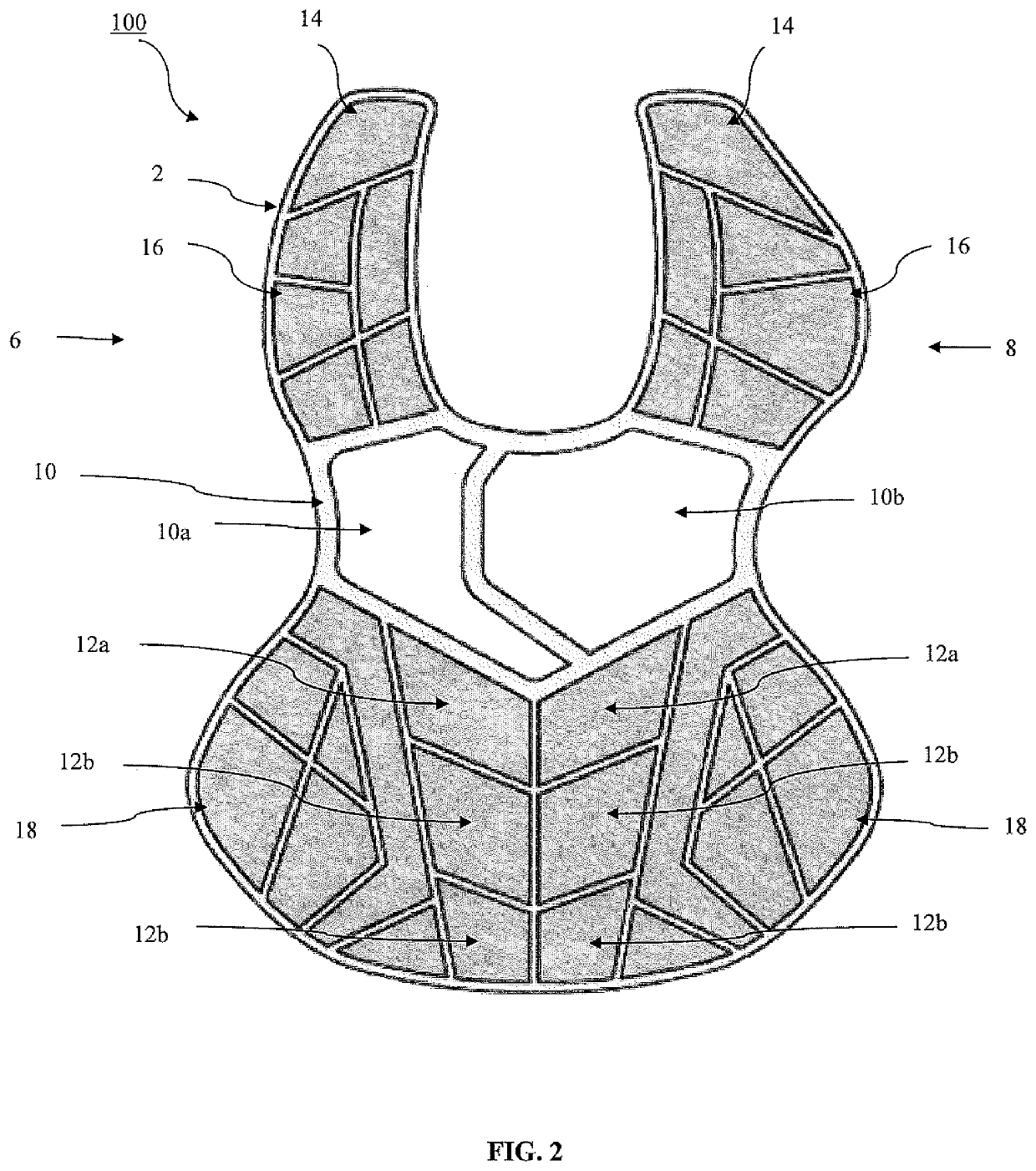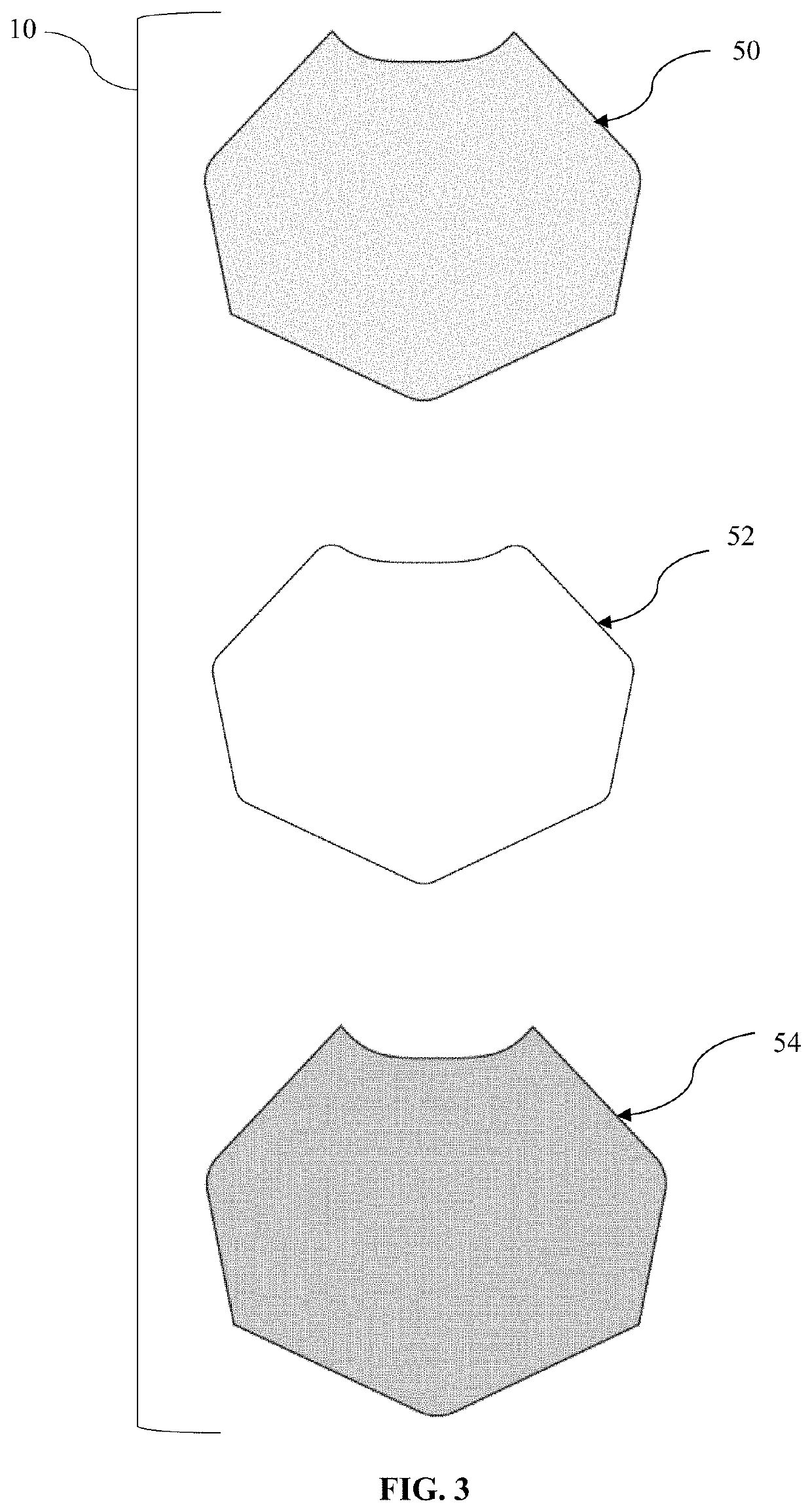Chest protector
a chest protector and chest technology, applied in the field of chest protectors, can solve the problems of baseball players regularly exposed to physical trauma, batters and base runners are also at risk of being struck by high-speed balls, and baseball, softball and lacrosse field players are also at risk of getting injured
- Summary
- Abstract
- Description
- Claims
- Application Information
AI Technical Summary
Benefits of technology
Problems solved by technology
Method used
Image
Examples
example 1
[0063]Testing Conditions
[0064]Chest protectors were tested using a mechanical surrogate according to the following test conditions:[0065]1. Environment: testing was conducted after the chest protector, projectile, and mechanical surrogate were exposed to controlled ambient temperature conditions per NOCSAE requirements for at least four hours.[0066]2. Mechanical surrogate: consists of damped loading surface, three single axis load cells (750 lbf maximum capacity capable of measuring force, and a rigid back plate. The three load cells) were positioned in between the loading surface and the back plate and represent the upper chest, lower chest, and cardiac silhouette. The mechanical surrogate was mounted to a linear bearing table capable of providing post impact motion with a weight not to exceed 12.5 lb with the base of the surrogate perpendicular (+ / −2.5 degrees) to the line of travel of the projectile.[0067]3. Air Cannon: positioned such that impact occurs to the impact site on the...
example 2
[0076]Testing Conditions
[0077]A chest protector according to one embodiment of the present invention was tested according to NOCSAE Standard ND 200-17am18 “Standard Test Method and Performance Specification Used in Evaluating the Performance Characteristics of Chest Protectors for Commotio Cordis.” The chest protector included a chest pad composed of two pads, such as that shown in FIG. 2. Each pad included a polymeric foam layer, a polymeric thermoplastic layer, a memory foam layer, and a layer of ethylene-vinyl acetate. The polymeric foam layer was arranged directly adjacent to the polymeric thermoplastic layer, the polymeric thermoplastic layer was arranged directly adjacent to the layer of ethylene-vinyl acetate, and the layer of ethylene-vinyl acetate was arranged directly adjacent to the memory foam layer. The layers were arranged in a vacuum formed tray.
[0078]According to the testing standards for the 30 mile per hour condition, for any impact, the peak force measured by the ...
example 3
[0087]Testing Conditions
[0088]A chest protector according to one embodiment of the present invention was tested according to NOCSAE Standard ND. 200-17a m18 “Standard Test Method and Performance Specification Used in Evaluating the Performance Characteristics of Chest Protectors for Commotio Cordis.” The chest protector included a unitary chest pad. The chest pad included a polymeric foam layer, a polymeric thermoplastic layer, and a memory foam layer. The polymeric foam layer was arranged directly adjacent to the polymeric thermoplastic layer and the polymeric thermoplastic layer was arranged directly adjacent to the memory foam layer.
[0089]According to the testing standards for the 30 mile per hour condition, for any impact, the peak force measured by the cardiac load cell (“CLC”) shall not exceed 90 lbf (400N) and the peak force measured by the upper chest load cell (“ULC”) or lower chest load cell (“LLC”) shall not exceed 112 lbf (498 N). For the 50 mile per hour condition, for ...
PUM
| Property | Measurement | Unit |
|---|---|---|
| thickness | aaaaa | aaaaa |
| thickness | aaaaa | aaaaa |
| thickness | aaaaa | aaaaa |
Abstract
Description
Claims
Application Information
 Login to View More
Login to View More - R&D
- Intellectual Property
- Life Sciences
- Materials
- Tech Scout
- Unparalleled Data Quality
- Higher Quality Content
- 60% Fewer Hallucinations
Browse by: Latest US Patents, China's latest patents, Technical Efficacy Thesaurus, Application Domain, Technology Topic, Popular Technical Reports.
© 2025 PatSnap. All rights reserved.Legal|Privacy policy|Modern Slavery Act Transparency Statement|Sitemap|About US| Contact US: help@patsnap.com



